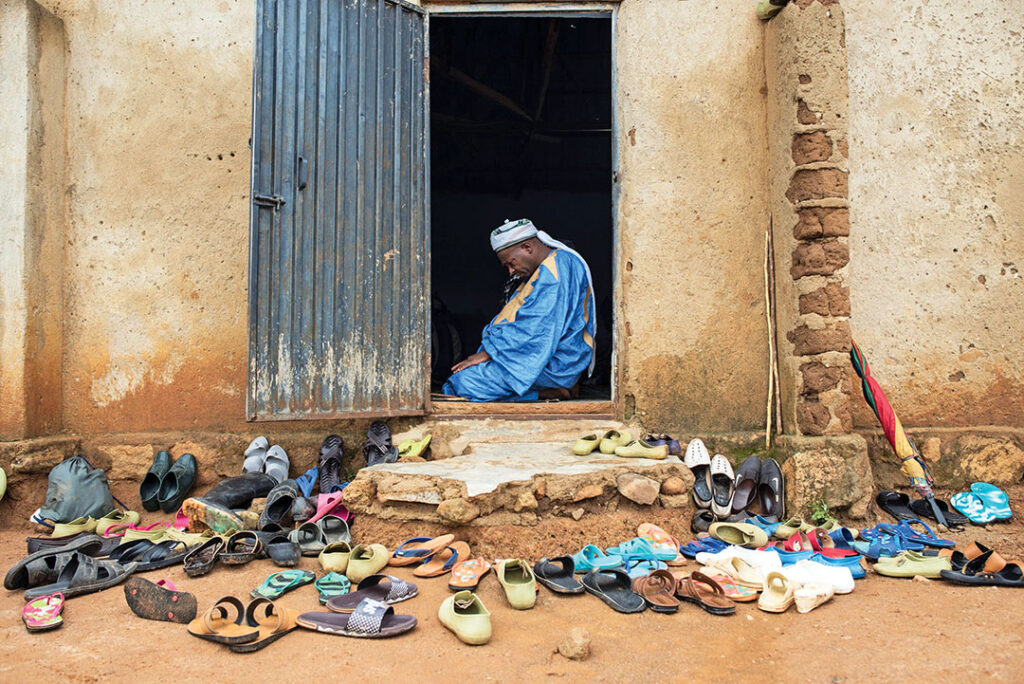ADF STAFF
In the vast agricultural Middle Belt of central Nigeria, Emmanuel Ogbudu has witnessed the power of local interventions.
Ogbudu, a monitoring and evaluation manager for the humanitarian group Mercy Corps, has spent more than 10 years as a peace practitioner. He likes to tell the story of a farmer in Bokkos, Plateau State, who called the police to arrest a herder whose cattle destroyed some of his crops.
Begging the farmer to withdraw the case so they could resolve it at home, the pastoralist contacted his local leader who had been trained by Mercy Corps in negotiation techniques. The leader met with the farmer and persuaded him not to file charges.
Then the mediation began in earnest, Ogbudu said. The result saw the herder pay the farmer a small amount of money for fertilizer.
“The dispute was completely resolved with both parties satisfied,” Ogbudu told ADF. “This is an example to show that the community people are really comfortable and confident in the negotiation and mediation skills of their trained leaders and prefer them in resolving disputes rather than escalating it.
“There are a lot of such stories.”
In Nigeria, where insecurity looms daily like a storm cloud over parts of the country, people are looking at the power of alternative approaches to peacemaking. Experts say developing tools and techniques that fit local culture and traditions are critical to successful mediations.
Based on some highly encouraging results of a recent study, researchers are urging leaders to act locally. The implications, they say, could benefit the entire continent.
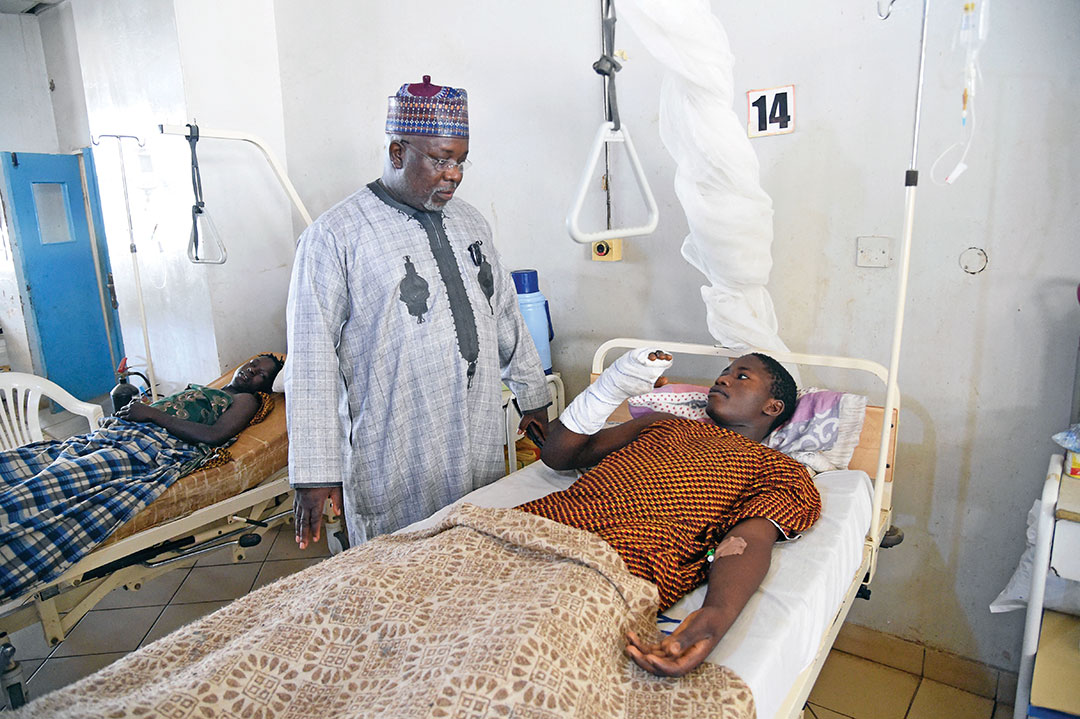
‘A Low-Cost Intervention’
In 2022, the Global Peace Index ranked Nigeria 143rd out of 163 countries and territories measured.
In addition to an insurgency by violent extremist organizations and rampant banditry and kidnapping, the country suffers from a seemingly never-ending procession of communal disputes along ethnic, religious, cultural and economic lines.
Home to more than 250 ethnic groups, Nigeria has a population that is largely split with Muslims in the north and Christians in the south.
Tensions between villages, tribes, neighbors, farmers, herders, gangs, vigilantes and others can flare at any time. Disputes over ideology, territory and other resources easily turn into conflict and bloodshed.
“People are seeking justice,” Kaltumi Abdulazeez said during a 2021 panel discussion on religion, identity and conflict in Nigeria.
As program officer at the Interfaith Mediation Center in Kaduna, Abdulazeez oversees peace-building programs in six states across northern Nigeria and the Middle Belt.
“There’s a saying that the costliest peace is cheaper than the cheapest war,” she said. “So I think it’s high time we go back to the drawing board to restrategize, analyze the context of this conflict and also provide local context and solutions.”
One of the keys to conflict resolution is trust.
According to Rebecca Jayne Wolfe, lead author of the 2022 Mercy Corps report, trust forms naturally among local, traditional, spiritual, and informal leaders and their communities.
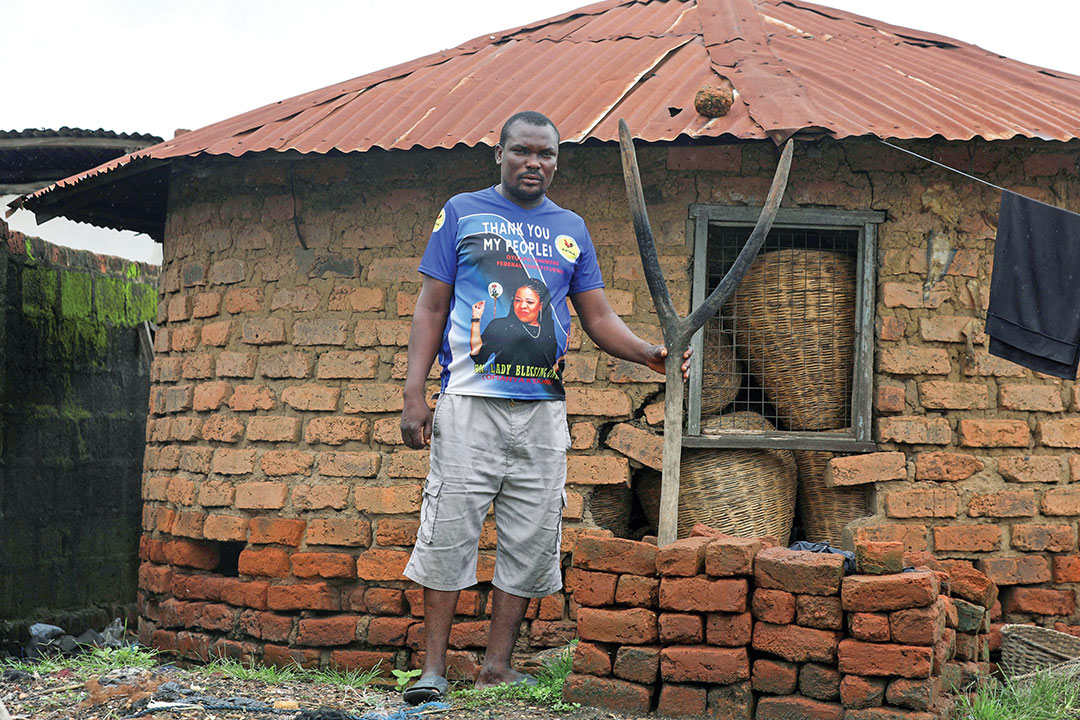
“The state presence [in the Middle Belt] is extremely weak,” she told ADF. “If it does show up, it’s often not trusted.
“And often when you see outsiders come in, that actually inflames rather than reduces. It can maybe make things stable for a little bit, but as soon as people leave, the conflict just comes back.”
Funded by the United States Agency for International Development, the study began with mediation skills trainings in 2019 and was published in 2022.
Researchers selected 340 local leaders from 44 communities in Benue, Kogi and Plateau states to be trained in mediation.
In follow-up surveys comparing those 44 communities to 44 others where local leaders in the same three states did not receive training, the data showed that mediation skills improved security and trust.
Six months of follow-ups showed a sharp decrease in violence in communities where leaders trained in mediation.
Nearly 30% of survey participants in those communities said they experienced a violent incident in that time, compared to 55% of participants in communities where leaders were not trained.
“The fact that we see this difference, 30% difference, is huge,” Wolfe said.
Leaders who received the training felt they had stronger conflict resolution skills. They and the survey participants in their communities felt they were safer.
They also rated their interactions in mediations with leaders from conflicting groups more positively than those who did not receive the training.
“That is really striking,” Wolfe said, “and it’s such a low-cost intervention.”
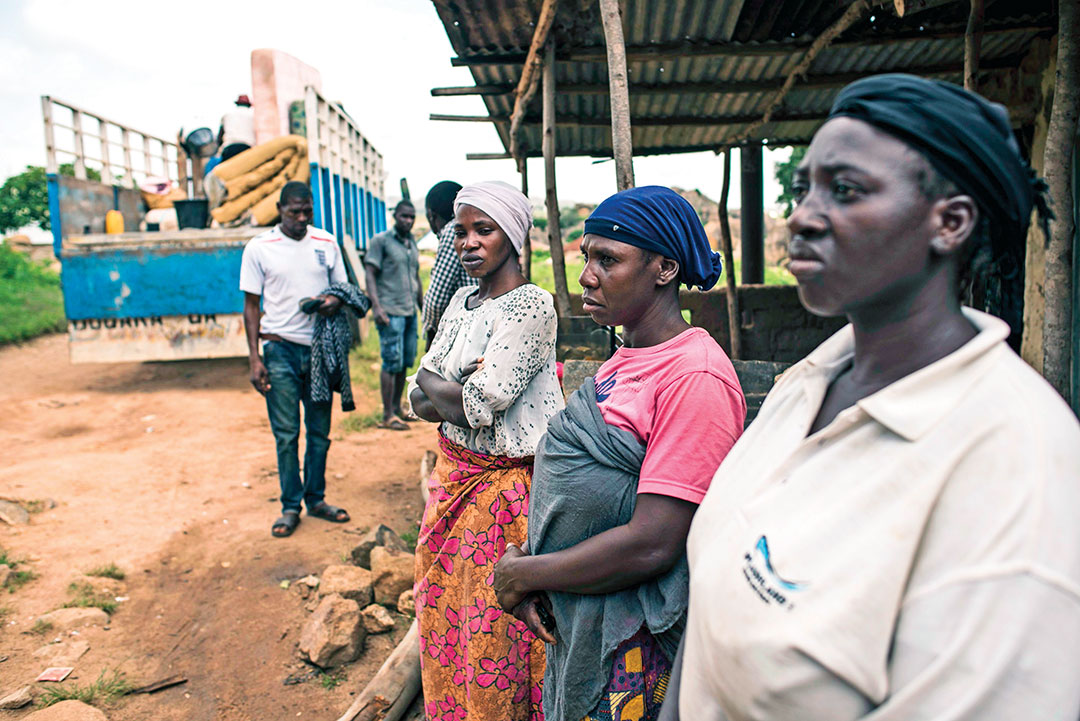
Addressing Conflict at Its Roots
Preventing local disputes and clashes from escalating would benefit any country.
In Africa, where some of the most violent extremists are terrorizing civilians in multiple regions, improving local conflict resolution could be transformative.
Wolfe calls local mediation an “underutilized” tool.
In developing a bigger and better toolbox in Nigeria, resolving conflicts at a local level with mediation has proven benefits for building and maintaining peace.
Stemming the tide of smaller-scale insecurity also lets authorities shift resources to areas with more complex issues.
Such knock-on effects could help Nigeria better address the terrorism that has devastated the northeast for 14 years.
“Alternative approaches are clearly needed,” Wolfe said. “What’s happening isn’t working.”
Another Mercy Corps research study that she led in northeast Nigeria worked with local religious leaders trying to reconcile with and reintegrate former members of Boko Haram.
“The two studies together really talk about that — the more local approach,” she said. “Those trusted figures have a lot of influence on conflict dynamics.”
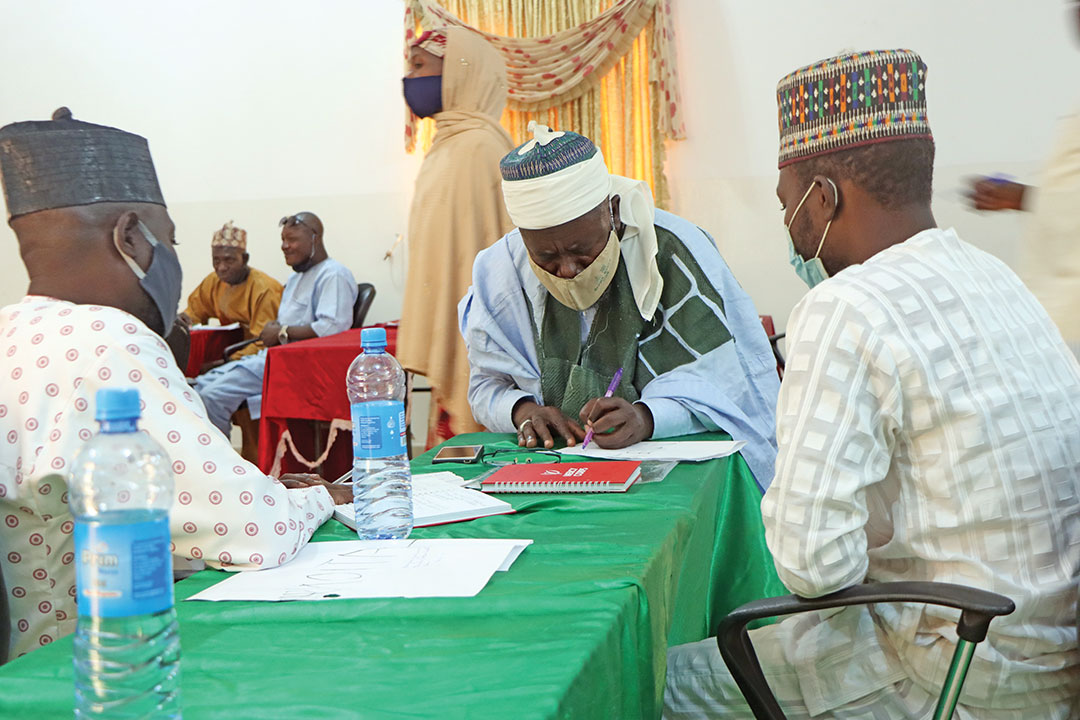
Nigeria’s war on terrorism and its intercommunal conflicts have much in common and some staggering differences.
Wolfe noted the lives lost and the harm to the country’s economy.
Mercy Corps spent $60,000 to train
340 local leaders, while Nigeria’s security budget recently increased by $500 million to $4.8 billion.
Intercommunal violence in the Middle Belt cost the economy an estimated $13 billion and claimed more lives in 2021 than did Boko Haram in the northeast, Wolfe said.
“These conflicts that don’t get a lot of press actually may have larger effects on people’s daily lives,” she said.
Wolfe knows that training local leaders in mediation won’t solve all of a country’s violence, but local conflict resolution can complement other security strategies.
It’s a sentiment Abdulazeez echoes and wants to advance.
She would like to see more members of the community, especially victims of violence, be involved in peacebuilding and mediation.
“It’s also important that we give them the opportunity to own the process,” she said. “They should be part of the planning and the implementation.
“If we begin to involve them in the entire process, we’re not only building their capacity, we are giving them a leadership role to be able to manage and mitigate conflict and facilitate community dialogue and mediation processes.”

